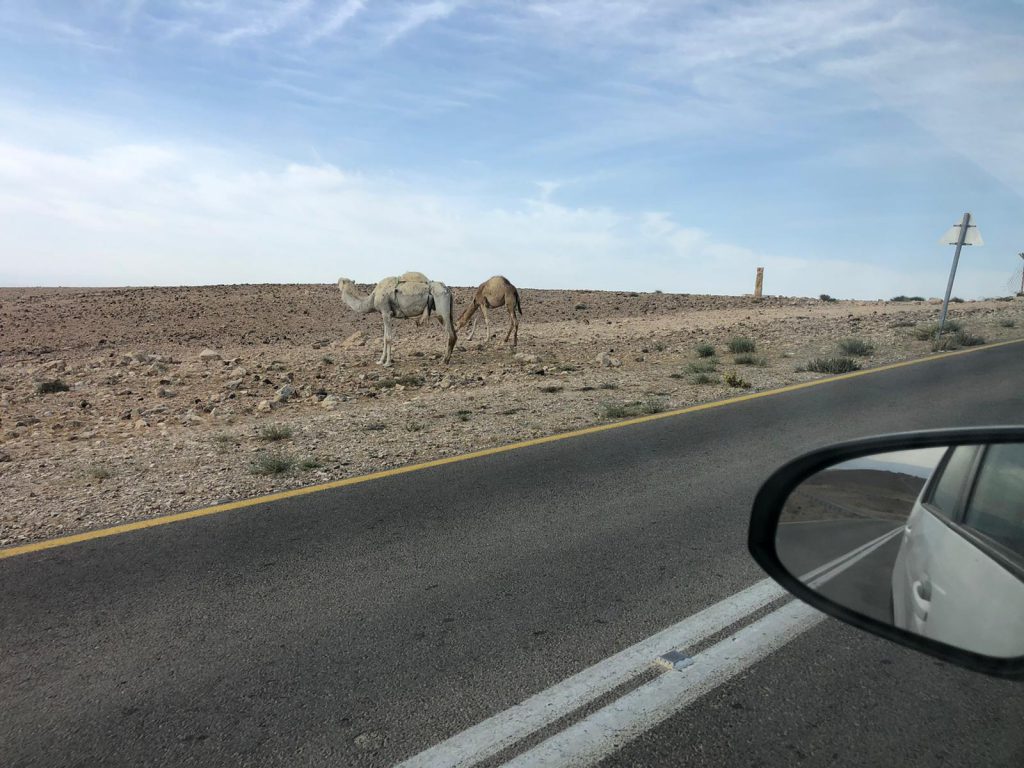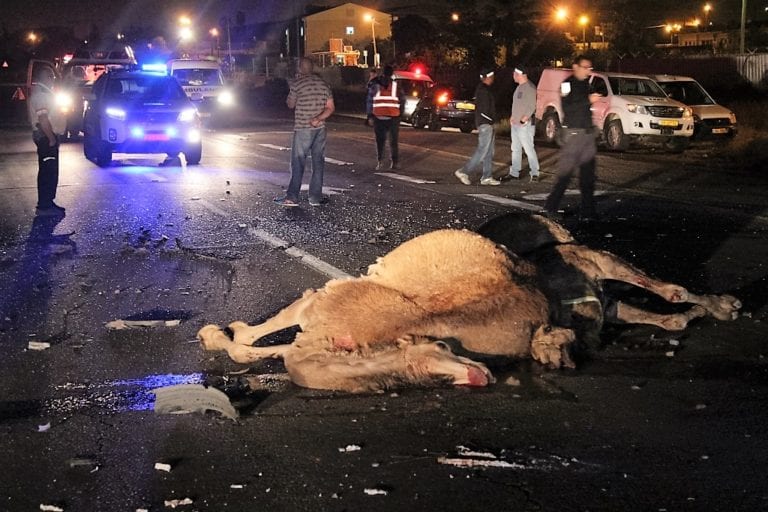Heartbreaking: Yuval Eilat’s widow releases cutting statement: “Our lives have been destroyed, and the camel caravan marches on.”
Three weeks after the fatal camel accident that cost Yuval Eilat Uzan his life, a herd of camels was seen roaming the Negev roads this morning. Regavim: “The Ministry of Agriculture’s negligence is a ticking time bomb.”
Just three weeks ago, Yuval Eilat Ozan, a resident of Kibbutz Dvir, was killed when he hit a stray camel while driving to work in Be’er Sheva. This morning, motorists reported on a herd of stray camels roaming the winding roads between Arad and Masada, endangering motorists’ lives. Judith Eilat Ozan, Yuval’s widow, decried the continuing chaos in the south, and criticized the authorities for ignoring the problem.
“Around three weeks ago, our lives and the lives of our beloved Yuval were decimated,” she says in pain. “It’s hard enough to come to terms with this blow and this unnecessary death, but the most shocking thing is to discover that his life and ours are of no importance; we are unprotected, and the caravan of camels continues to walk the roads of the Negev as if nothing happened. More camels, and more accidents, are on the way.”
“We are honest, law-abiding people who have always believed that the authorities should take responsibility for human life and insure people’s safety. This disregard, this abandonment, and the danger of this ongoing threat haunt us constantly. Perhaps if this problem is addressed and the government takes responsibility it will give some meaning to Yuval’s unnecessary and painful death.”
The Regavim Movement, which has been monitoring and addressing the phenomenon of camels roaming the Negev and led the battle for legislation of the 2018 “Camel Law” passed in 2018 by MKs Bezalel Smotrich and Eitan Kabel, notes that the Ministry of Agriculture is dragging its feet and stalling the full implementation of the law, which requires camels to be marked with a subcutaneous chip and imposes criminal liability on owners of wandering camels.
Yakhin Zik, Director of Operations at Regavim, says: “Fatal road accidents involving camels are a shocking phenomenon that must be eradicated. The Ministry of Agriculture has failed to implement the law and has not completed the camel registration and chip-identification that is meant to force owners to keep a close eye on their animals. We are working on an official Knesset plenum query on this matter and we will continue to monitor developments closely.”










